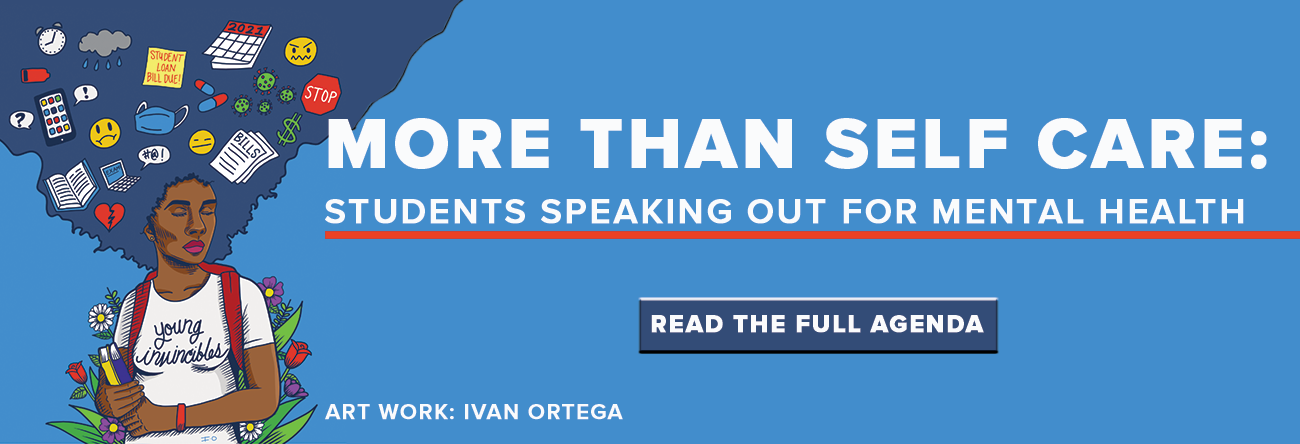
2020 Just Hit Different: An Introduction
The impact of COVID-19 has led to widespread concerns about its unique effects on college students’ mental health. Surveys of college students conducted after March 2020 have repeatedly suggested that distress among college students has increased. Prior to the pandemic, headlines noted how a college student mental health crisis seemed to be taking place at U.S. colleges and universities and labeled Generation Z “the anxious generation.” Texas campuses and their counseling centers in particular were seeing increased, unmet demand from students. A Texas Tribune investigation found that six Texas public universities fell short of the recommended ratio of one mental health counselor to no more than 1,500 students, with ratios as high as 1:3,285. National assessment data showed rising levels of mental health challenges, with rates of students reporting ever being diagnosed with depression increasing by almost 250 percent between 2000 and 2019. The Pandemic laid bare the fragility of the mental health support system and services college students rely on. As much as students struggled to access mental health and counseling services before Covid-19, the gap between need and availability only expanded. This is especially true for students that are Black, Indigenous, and communities of color (BIPOC), lesbian, gay, bisexual, trans, queer, intersex, asexual (LGBTQIA+), immigrant (including undocumented), disabled (taking into account the full spectrum of disabilities), criminalized, homeless/houseless, low-income and parenting while in college. Despite the universal nature of COVID disruptions to students’ lives, marginalized students face additional challenges due to urgent and enduring harms stemming from structural inequities. While many leaders, opinion-makers, and institutions have sought to simply move on from the COVID-19 Pandemic, students in Texas need reforms that last beyond the worst days of the crisis.

The importance of equitable access to mental health services, community, support networks, and healing must remain ever present in our work. Postsecondary education is a critical time in a young adult’s life and mental health challenges have a negative impact on degree completion and the wellbeing of Texas students. Given the importance of higher education in today’s workforce, this can threaten the economic standing of young Texans for years to come. This policy agenda seeks to start a conversation in Texas on how we can build and strengthen mental health options and resources available and be accountable to impacted students at our colleges and universities. Our agenda was built by looking at resources offered at 80 institutions of higher learning, informational interviews with institutional leadership, and listening sessions with students across the state. Our data gathering revealed that disparities exist in the ways students access services, creating new openings and opportunities to advance new policy priorities for campus mental health prevention and intervention.

